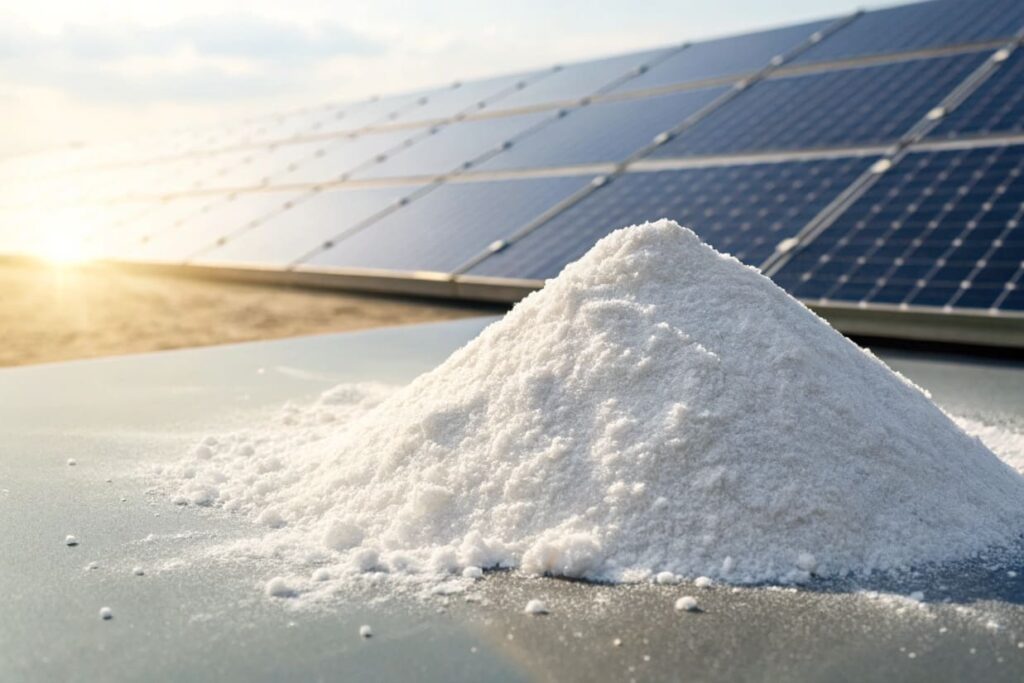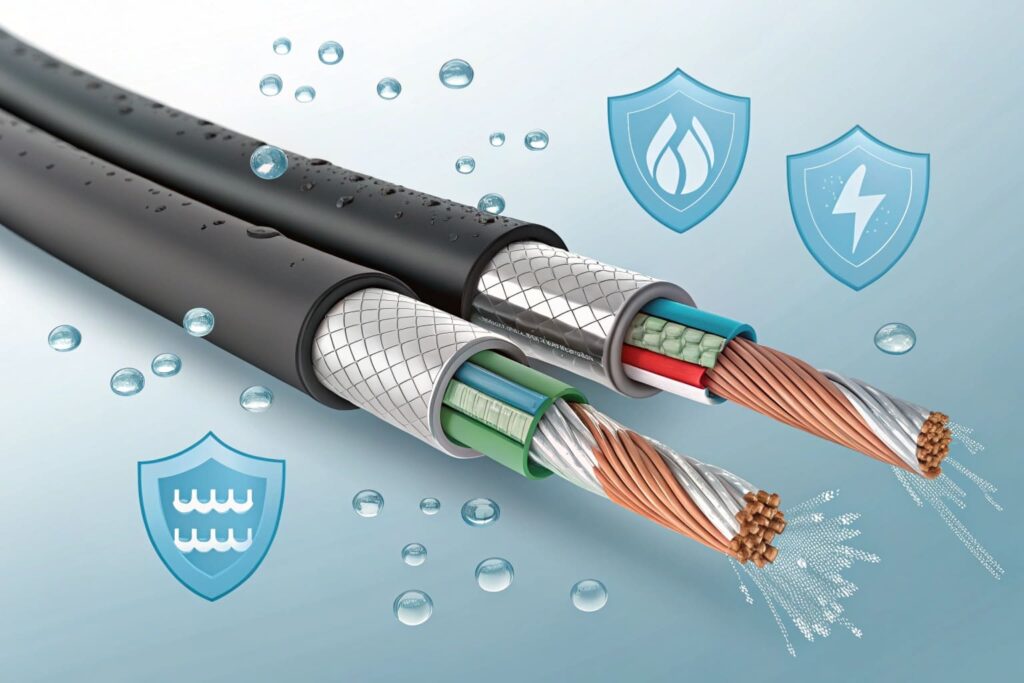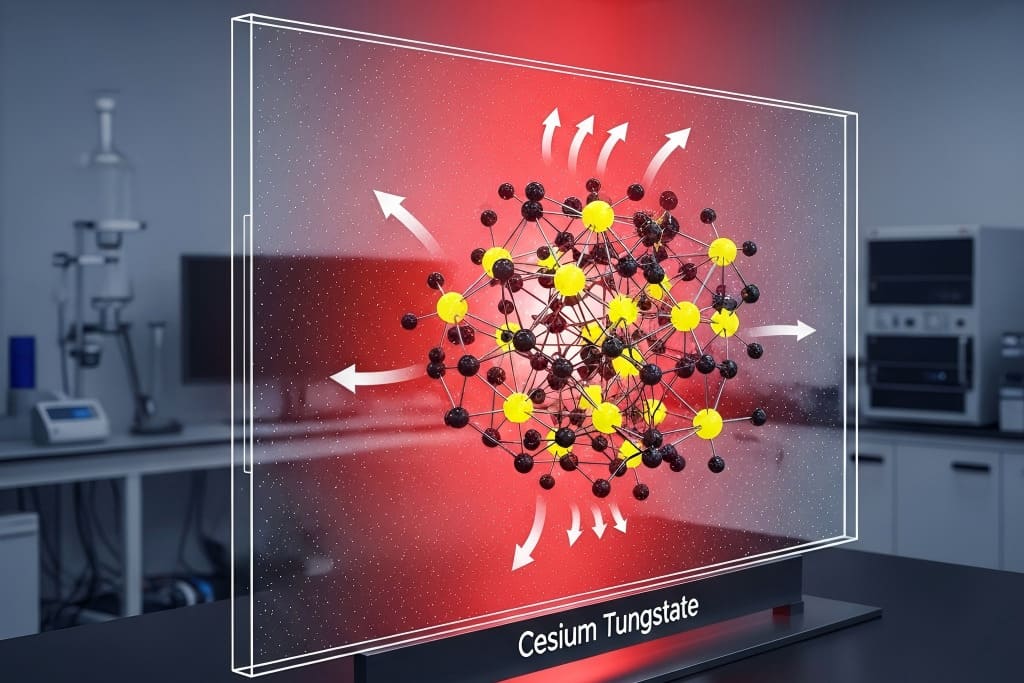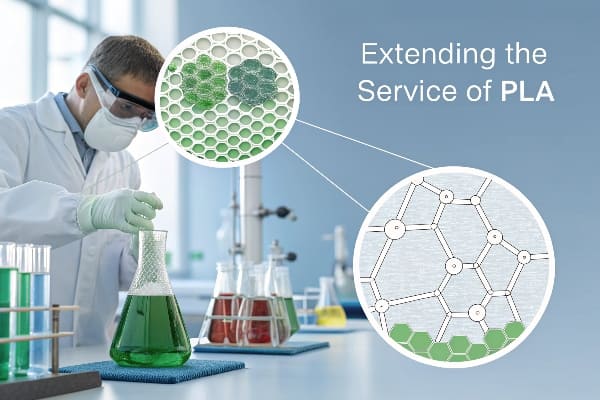Struggling with PID Loss? See How Zirconium Phosphate (ZrP) Delivers Powerful Anti-PID Protection

Are you frustrated by the mysterious power loss in your solar panels? Potential Induced Degradation (PID) is a silent thief, stealing efficiency and shortening the life of your valuable investment. Don’t let your solar panels fall victim to this invisible enemy! PID, or Potential Induced Degradation, is a common issue in solar panels where a […]
Enhancing your TPU Product with Anti-Hydrolysis TPU Masterbatch

Do you find your TPU products losing their strength and failing prematurely due to water damage? Many manufacturers struggle with hydrolysis1, a process that significantly shortens product life. Using an anti-hydrolysis TPU masterbatch2 greatly improves the durability and useful life of polyester-based TPU3 products by actively shielding them from water degradation, keeping their mechanical properties […]
Replacing Antimony Trioxide with ZrP in Flame Retardant

Are you struggling to find flame retardant additives1 amidst export bans? The search for effective and safe alternatives can be tough. Zirconium phosphate (ZrP) offers a promising solution, effectively replacing antimony trioxide in flame retardant applications with lower addition levels. As a safe and environmentally friendly inorganic compound, ZrP provides an excellent alternative for your […]
The Application of Anti-Hydrolysis Agent in EVA Cable: Is It Essential?

High humidity and temperature destroy EVA cables. This threatens performance and safety. How can we protect them? Anti-hydrolysis agents1 are crucial for EVA cables, especially in humid or high-temperature settings. They prevent material degradation by reacting with water, maintaining cable integrity and extending lifespan. This stops hydrolysis, which can ruin the cable’s properties. We have […]
Cesium Tungstate: Excellent IR Blocking Material and Its Application?

When you feel that scorching heat on a sunny day, do you ever wonder what’s causing it? It’s often infrared light, and finding materials to block it is a big challenge. Cesium tungstate is a superior infrared blocking material due to its unique crystal structure and electronic properties that efficiently absorb and scatter infrared radiation1, […]
Near-Infrared Absorbing Materials and their applications

Are you looking for ways to control heat and light efficiently in your products or buildings? Do you want to optimize energy use while maintaining clarity? Near-infrared absorbing materials offer a revolutionary solution to these challenges. Near-infrared (NIR) absorbing materials are substances that effectively absorb radiation in the near-infrared spectrum while allowing visible light to […]
Key Additives for Enhancing EVA and POE Encapsulants: Beyond the Basics?

Are you in the solar industry, constantly seeking to improve the longevity and performance of photovoltaic modules? Do you know that the right additives can make a significant difference in the durability of your solar panels? Understanding these key additives for EVA and POE encapsulants is crucial for module reliability. Key additives for EVA and […]
How Does High Temperature and Humidity Lead to PET Plastic Hydrolysis?

Are your PET plastic products failing prematurely, especially in hot and humid conditions? Do you wonder why this seemingly stable material can suddenly become brittle or degrade? Understanding PET hydrolysis1 is key to preventing these issues. PET plastic, while generally stable, is susceptible to hydrolysis, a chemical reaction with water that breaks down its polymer […]
How to Extend the Service Life of PLA with Additives

Are your PLA products failing prematurely, especially in challenging environments? Do you want to unlock the full potential of this sustainable polymer? Using the right additives can significantly extend the service life of PLA1. To extend the service life of PLA, especially against degradation caused by humidity and heat, specific additives like anti-hydrolysis agents2 (e.g., […]
